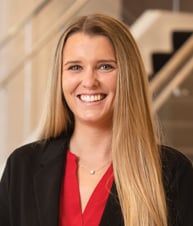Following the National Collegiate Athletic Association’s (NCAA) 2021 adoption of its policy allowing student-athletes to profit from the use of their name, image, and likeness (NIL) without compromising NCAA eligibility, new organizations, called NIL collectives, have arisen to pool contributions and fund, develop, or otherwise facilitate NIL opportunities for student-athletes. Many NIL collectives are formed as nonprofit entities under state law and have applied for and received federal income-tax-exempt status under Section 501(c)(3) of the Internal Revenue Code.
Chief Counsel Memorandum AM 2023-004 is the first guidance provided by the Internal Revenue Service (IRS) on whether the activities of NIL collectives further an exempt purpose under Section 501(c)(3) and qualify for tax-exempt status. Chief counsel for the IRS concluded in AM 2023-004 that many NIL collectives do not qualify as tax-exempt under Section 501(c)(3) because they operate primarily to benefit the private interests of student-athletes rather than a charitable cause, calling into question the future tax treatment of these organizations.
NIL Collectives Generally
NIL collectives are often established by supporters of university athletic programs, but they are legally separate from the university and its athletic departments. These organizations pool donations and develop paid NIL opportunities for student-athletes of the university they support, often in partnership with one or more for-profit businesses or in the case of a 501(c)(3) collective with one or more charities. NIL collectives that have received tax-exempt status from the IRS under Section 501(c)(3) have qualified for exempt status due to these relationships with partnered charities. Their exempt purpose, as required under Section 501(c)(3), is typically promoting and supporting other 501(c)(3) charitable organizations. If an NIL collective is not tax-exempt, then contributions to it would not be tax deductible for the donor and income generated by the collectives would be taxable.
NIL collectives that are exempt under Section 501(c)(3) carry out this charitable purpose by identifying and facilitating opportunities for the student-athletes that will ultimately benefit the partnered charities through increased visibility for particular events or increased fundraising. These NIL opportunities often include promoting the collective or its partnered charity through social media posts, attending fundraising events, or autographing items to be sold by a partnered charity, often at no cost to the charity. The NIL collective then pays the student-athlete for participating in the charitable promotion.
Qualifying for Tax-Exempt Status
To qualify for tax-exempt status with the IRS under Section 501(c)(3), an organization must be “organized and operated” exclusively for “exempt purposes,” such as religious, charitable, scientific, literary, or educational purposes.
To be operated exclusively for exempt purposes, the organization must engage primarily in activities that accomplish those purposes. This means the organization must primarily serve a public interest rather than a private interest. If the organization serves both public and private interests, the private benefit must be both qualitatively and quantitatively incidental to accomplishing the organization’s exempt purposes. The private benefit is considered “qualitatively incidental” if it is necessary to or a byproduct of the exempt activities, and the benefit is “quantitatively incidental” if the amount is insubstantial compared to the public benefit.
Chief Counsel Memorandum AM 2023-004
In AM 2023-004, the IRS chief counsel questions whether the activities of NIL collectives further an exempt purpose to qualify as tax exempt under Section 501(c)(3).
The IRS chief counsel concluded that many NIL collectives do not qualify for tax-exempt status under Section 501(c)(3) because they are not operated exclusively for an exempt purpose. In many cases, it believes the organization is instead operating to serve the private interests of student-athletes, and this private benefit is more than qualitatively and quantitively incidental to any exempt purpose. The IRS chief counsel concluded the private benefit is not qualitatively incidental for the following reasons:
- Student-athletes benefit from the NIL collective by receiving compensation, and this direct benefit is a “fundamental part of a nonprofit NIL collective’s activities.”
- The private benefit to student athletes is “the very justification for the organization’s existence and any incidental exempt purpose it furthers.”
- The student-athletes are benefited by more than just compensation. They also receive relief from the transaction and compliance costs involved in an NIL deal that they otherwise would incur.
- The benefits are directed to a limited noncharitable class of people.
- There are other factors suggesting the primary purpose is to compensate student-athletes, such as statements on the importance of NIL collectives for retaining and recruiting student-athletes.
The IRS chief counsel further concluded that the private benefit is not quantitatively incidental because, while the public benefit from the various types of NIL activities will necessarily vary, it will always be accompanied by a private benefit to the student-athlete. For NIL collectives that promise to pay a considerable portion of donations solely to student-athletes, this private benefit may be substantial.
Implications and Conclusion
The key takeaways from AM 2023-004 are that in the IRS chief counsel’s opinion, NIL collectives should not receive a tax-exempt status determination from the IRS if their primary purpose is paying compensation to student-athletes, rather than furthering exempt purposes. While AM 2023-004 itself does not revoke any NIL collective’s current tax-exempt status, it can be expected that more activities of NIL collectives will be questioned.
Going forward, NIL collectives that currently have tax-exempt status from the IRS may continue to operate as they previously have but should be aware that their activities are now more likely to be reviewed by the IRS and challenged if they are determined to not be substantially charitable. Existing entities wishing to protect their tax-exempt status and the deductibility of future donations, or new organizations wishing to apply for tax-exempt status initially, should ensure their activities are primarily in furtherance of exempt purposes such that partnered charities are receiving the substantial benefit from their activities, rather than the benefit being merely a byproduct of paying student-athletes. Alternatively, NIL collectives can choose a different (but taxable) entity structure, such as a for-profit LLC or corporation, which would not be subject to the same 501(c)(3) restrictions and could facilitate commercial activities, though contributions to such entities would not be deductible and income generated by such entities would be taxable.
Although AM 2023-004 is the IRS’s first published guidance on NIL collectives, we can expect a closer eye on these entities going forward. Alston & Bird can advise on the proper formation of NIL collectives, application for and maintenance of tax-exempt status, responses to any inquiries from the IRS, and any governance, state-law, or NCAA issues that may arise.
For more information, please contact Jake Kaplan at +1 404 881 4296, Nicole Brown at +1 404 881 7167, or Trenton Hafley at + +1 213 576 2617.


